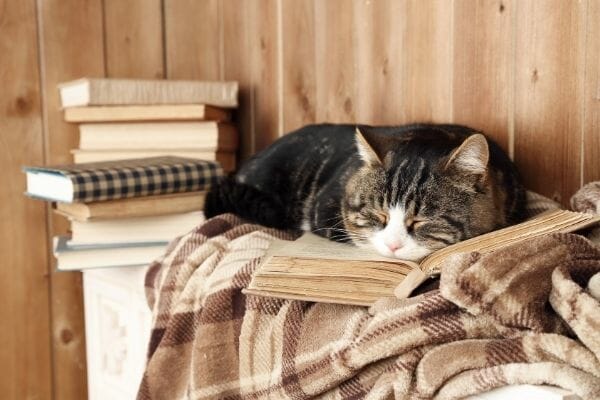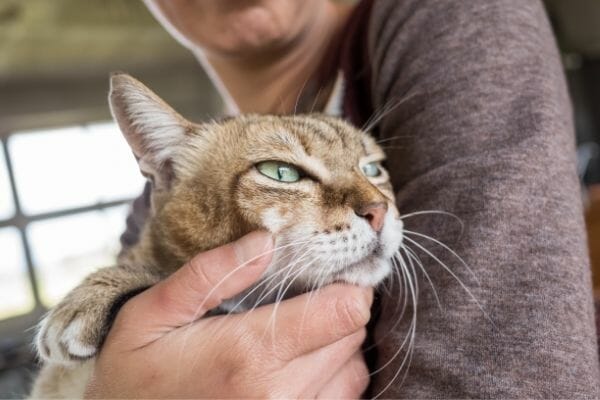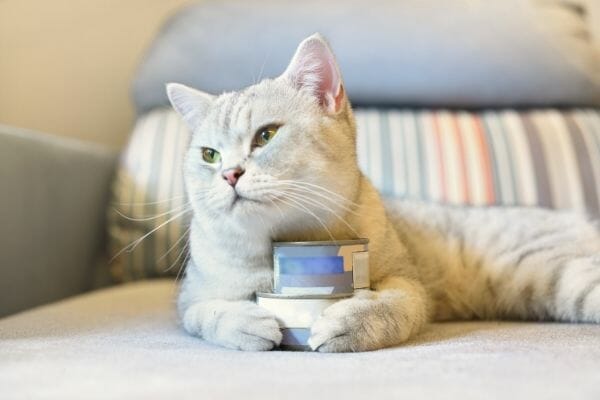Just like us, cats go through various life stages and have different needs at every stage. It’ll take years before they are officially called “seniors,” but once they reach the age of 7, their metabolism and activity levels may start to slow down. As such, their nutritional needs alter as well. This Waldo’s Friends article delves into the best food that should be fed to senior cats, and discusses:
- How old is a senior cat?
- When should I switch to senior cat food?
- What should be in my senior cat’s food?
- Other reminders for feeding older cats
How old is a senior cat?
Catfriendly.com shares that cats go through 6 stages in their lives, namely: kitten (from birth to 6 months), junior (7 months to 2 years), prime (3 to 6 years), mature or middle-aged (7 to 10 years), senior (11 to 14 years), and geriatric (15 years and above).
As your pet cat gets older, you should be more vigilant in looking after her well-being. After she turns 7 years old, it is recommended that she undergoes wellness exams every six months instead of annually. Plus, you should be more observant of changes in your cat’s behaviour, her toilet habits, and what she eats or how much she consumes.

When should I switch to senior cat food?
There is no hard and fast rule as to when you should switch to food specially made for senior cats. It all depends on your cat’s needs, issues she may be experiencing, and your veterinarian’s recommendations. Hence, it is essential to consult with your veterinarian and run tests before modifying your cat’s diet. These goals should be considered and discussed with your vet as well:
- Keeping or losing body weight
- Maintaining body muscle
- Decreasing symptoms of a pre-existing illness
- Preventing or slowing down of a chronic illness
Some veterinarians recommend a change in a cat’s diet when they manifest early signs of an illness. PetMD lists the most common diseases that ails senior cats:
- Cancer
- Cognitive Dysfunction Syndrome
- Dental disease
- Diabetes
- Hyperthyroidism
- Inflammatory bowel disease
- Kidney disease
- Osteoarthritis
If you suspect that your cat may be suffering from any of these diseases, set an appointment with your veterinarian and share your observations.

What should be in my senior cat’s food?
Once your aging cat’s physical exams and wellness test findings are complete, the vet can recommend the best meal plan for her. Remember to transition her food slowly by doing a gradual seven-day switch, and choose meals with high-quality ingredients to keep her healthy and strong. Most, if not all, of senior cat food should contain:
- High levels of antioxidants: Vitamins A, C, and E, carotenoids, and selenium are known to be powerful antioxidants. Food packed with these antioxidants help break the cycle of molecular and cellular damage by donating electrons to free radicals.
- Moderate to high levels of fat: Since aging cats have a harder time digesting fat, the amount of fat they consume needs to be adjusted depending on their body condition score. Those with diabetes, colitis, or inflammatory bowel disease (IBD) may benefit from meals high in fat, while overweight cats should have less.
- Right amount of protein: Older cats also have a difficult time digesting protein. Compounded by difficulty in digesting fat, this may result in loss in body fat and muscle mass. Therefore, protein intake should be closely monitored in senior cats so they stay within their ideal weight. Older cats suffering from chronic kidney failure, colitis, IBD, diabetes, and hyperthyroidism should go on diets with highly digestible protein.
- Low levels of phosphorus: The kidneys are responsible for removing excess phosphorus from the bloodstream. When a cat suffers from chronic kidney disease (CKD), she is unable to process phosphorus, other compounds, and waste products within her body. High levels of phosphorus may damage your cat’s body, pulling calcium out of her bones and making her feel weak. Therefore, cat food high in quality protein but low in phosphorus should be served to senior cats with CKD.
- Omega-3 fatty acids: Said to aid cats with cancer, arthritis, and cognitive dysfunction, these polyunsaturated fatty acids have anti-inflammatory effects. They are commonly found in cold-water fish oils such as salmon, anchovies, and sardines.
Aside from the aforementioned ingredients, cat food rich in dietary fiber can benefit those with colitis, constipation, or anal gland disease. Meanwhile, meals high in taurine but low in sodium can benefit senior cats with heart diseases.

Other reminders for feeding older cats:
- Since their senses have started to wane, it is important to serve your aging cat more palatable meals that smell irresistible, taste great, have a good amount of moisture, and offer the texture they prefer. When feeding your senior cat, make sure her dry food contains 10% fat and 28% protein. Meanwhile, wet food should have 4% fat and 8% protein.
- Cats with missing teeth or suffering from oral diseases may have an easier time consuming wet food or kibble softened with warm water. Wet or moistened food can also benefit cats with urinary tract issues.
- Serve your cat’s food in a clean, shallow dish. Some cats dislike eating from bowls where their whiskers touch the sides.
- Warming up your cat’s wet food may help it become more palatable and delicious smelling. Make sure to heat it close to but not above body temperature. You can also add some water from a can of unsalted tuna to encourage your cat to eat more.
Always consult with your veterinarian regarding your cat’s ever-changing nutritional needs. With the proper care and sustenance, your senior cat can stay healthy and purrfectly content until she crosses the rainbow bridge.
Check out our guides to read more articles on responsible cat parenting. Discover the truth about cats and water, or learn how to remove fleas on your cat!
Leave a comment
Your email address will not be published. All fields are required.